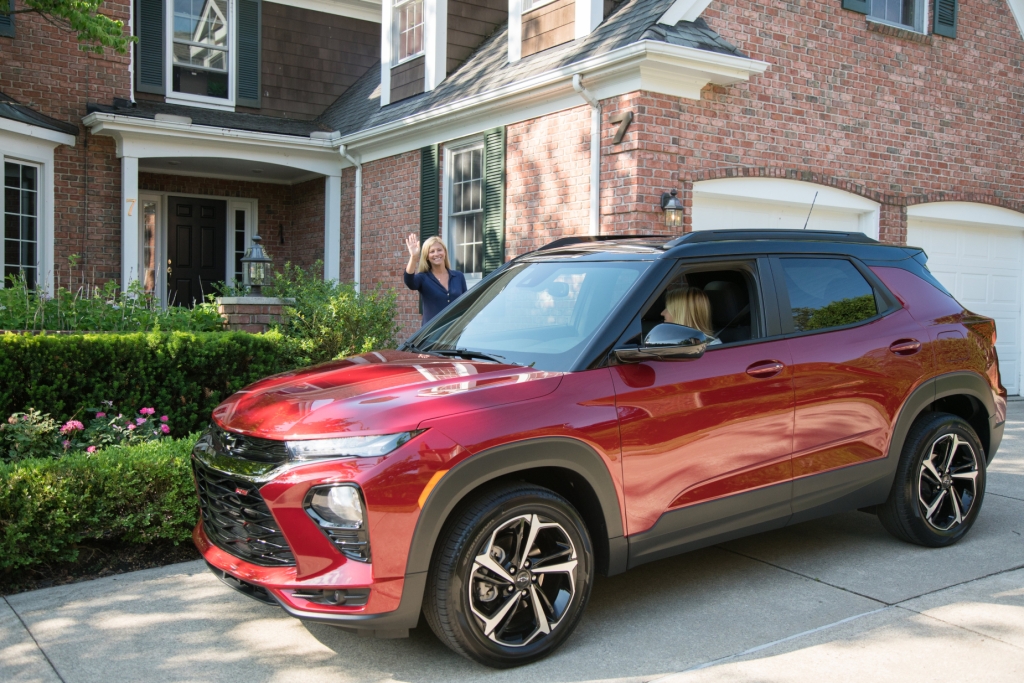
Jaguar Land Rover had announced plans to make a self-driving car in October. The company's goal, according to Jaguar Land Rover, is to reduce driver distractions while improving safety on the road. It is partnering with NVIDIA, the world leader in artificial intelligence, to jointly develop the next-generation of automated driving systems. The NVIDIA DRIVE platform allows for advanced visualisation of vehicle environments. Future Jaguar and Land Rover cars will therefore be built on this platform.
To test this technology, Jaguar is enlisting the help of cognitive psychologists to study human perceptions of trust. It is part the UK Autodrive project of Jaguar, which is being supported by the government. The trials aim to identify how people feel about being in an autonomous car. The company plans on studying pedestrian reactions to see how their cars interact safely with them.
Jaguar's self driving cars have a unique system that shows people what the car is going to do. This project images onto the road ahead of it. People can then see exactly where the car goes and whether or not they should cross it. This is also a safety measure for drivers.

Jaguar is focusing their efforts on a unique safety feature that uses 3D tech to help drivers see where they are headed. This helps them adjust their speed and lane positioning, which will help to prevent accidents. This system is currently being tested on Intelligent Pods which are self-driving cars built to trust pedestrians.
These cars will include a "wellness scoring" which will allow drivers to assess their own wellbeing. This could be used to reduce the symptoms of motion sickness up to 60%. Customers will also be able watch movies and to read books in the car with this feature. Even if the driver disconnects from autonomous mode, the technology will still work. A wireless charging system for anti-microbial devices will be developed by the company to prevent the spread and spread of bacteria.
Jaguar Land Rover has also been working with the Engineering and Physical Sciences Research Council, a UK-based body that aims to improve mobility and safety. Their goal is for 100 driverless cars to be on the roads by 2020. The company has also invested PS11 million to create a fund for research on autonomous vehicles.
This technology could reduce congestion on the roads. Automated cars and connected vehicles will help people avoid injuries, which may reduce traffic. This is especially true in areas that have poor infrastructure.

California's most recent incident highlights the dangers of these cars. A pedestrian ran into one of these cars, puncturing its windshield. The alleged aggressor was taken into custody, but nobody was seriously hurt. This incident serves as a reminder that people need to learn how to trust new technology.
The test pods are equipped with virtual eyes. These virtual eyes are used to make eye contact with people and will be an integral part of Jaguar Land Rover's trust program. The system displays the car's current travel direction on a projected beam. This will inform other drivers where the car goes and how it approaches the road.
FAQ
What can I do to fix my car as an hobby?
You might be interested in cars as a hobby. You could learn how to repair them, buy parts for them, sell them or just enjoy them. It's a fun hobby that you can do if it interests you.
It's not an easy task to make this a full-time job. This requires dedication and hard work. You'll also need to invest a lot.
It is best to avoid getting involved in car accidents unless you have good reasons.
How can I prepare to become a mechanic apprentice?
It is important to have an understanding of what you are going into. You should be familiar with the mechanics of cars, and how they work. This way, you know where to start when you go on your first day at the garage.
Also, you need to know how fix simple problems, such as tires and lights that aren't working.
This will teach you how to diagnose problems and fix them yourself.
It is also important to know how the different pieces fit together in order to put them together again.
And finally, you must know how to use tools safely and efficiently.
All these aspects will help you become a competent technician.
Is being a mechanic apprentice hard?
It's not easy, however, it is very rewarding and offers many opportunities for growth.
You must be patient and persistent. You should also be able to repair cars, trucks, and motorbikes.
Customers and family members can put a lot pressure on you. They want you to succeed. You shouldn't feel pressured to make decisions that you don't like.
It could be a great job choice if you love fixing cars. This job allows you to make a decent wage and build up your company.
However, you might prefer to go down another route. If this is the case, you might want to become a technician.
This requires you to use your technical expertise in support of other workers. You could help technicians troubleshoot problems or teach them new techniques.
Another option is becoming a service advisor. Here, you'll provide advice and assistance to customers when they bring their cars to a garage.
It all depends on your goals. There are many options, so you can choose the one that suits you best.
What qualifications do I need to be a truck mechanic?
This job requires you to be a skilled mechanic, although you do not need any formal training. Your knowledge is valuable as you are able to quickly diagnose problems and work efficiently.
Your knowledge of diesel technology will allow you to identify the parts that are required to fix our vehicles.
Statistics
- 52% of Mechanics in the United States think their salaries are enough for the cost of living in their area. (indeed.com)
- According to the BLS, total auto technician employment is expected to exceed 705,000 by 2030. (uti.edu)
- The U.S. Bureau of Labor Statistics (BLS) reports that the job outlook for automotive service technicians and mechanics is expected to decline by 4% from 2019 to 2029. (indeed.com)
External Links
How To
How to become an Automotive Technician
Automotive technicians provide repair and maintenance services to vehicles. He/she works at automotive shops, garages or service centers. He/she assists customers in fixing their cars, trucks or motorcycles. A technician in automotive must be able diagnose and repair problems quickly, safely, accurately, efficiently, and effectively.
If you want to be an automotive technician, you need an associate degree from vocational school. After completing this program, he/she must pass the National Institute for Automotive Service Excellence (ASE) certification exam. ASE stands as American Society of Mechanical Engineers. Two sections make up the ASE certification examination. The first section tests your mechanical skills, while the second tests your practical knowledge. To take the test, you must visit one of the approved testing locations. These locations can be found online, or by contacting your local car dealer.
Before becoming an automotive technician, a candidate must pass the test. This process varies depending on where the applicant lives. Some states require that applicants attend a training class, while others allow them freedom to study at their own pace. Some states issue licenses to technicians as soon as they get their license. Others wait until they have worked at least six months as an automotive technician.
To get started as an automotive technician, a person should apply to a local automotive dealership. Most new employees work as apprentices after they have been hired. Apprenticeship programs typically last three to four years. Students learn basic repair skills such as changing oil and adjusting brakes, changing tires, cleaning spark plugs and inspecting engine compartments. Some students learn how to do advanced repairs, such as installing air filters, replacing shocks, repairing engines, and replacing transmission fluids. Many schools offer classes during regular hours. Some schools also offer evening classes when needed.
When a student has completed his/her apprenticeship, they become a journeyman. Journeymen can spend up to five years learning how major systems work, including transmissions, differentials. They also learn how to adjust steering gear and suspensions. They also learn to perform complex repairs, such as remanufacturing engines, rebuilding transmissions, and troubleshooting electrical components. Because they have a good understanding of the job and what customers expect, many employers prefer to hire journeymen.
Once a candidate passes the required exams and is granted a license, they might consider opening their own shop. According to the Bureau of Labor Statistics in 2010, nearly 1.7 Million automotive mechanic jobs were available. That number was expected to grow by 18 percent from 2009 to 2020. The candidate should expect to invest thousands of money in equipment and supplies if he/she decides to start his/her shop.
Automotive technicians' salaries depend on many factors such as the employer, whereabouts, education level and experience. On average, a jobless person could expect to earn $20,000 annually. Someone who has only a highschool diploma could earn around 21,000 dollars per year. An associate's degree earns approximately $24,000 annually. A technician with a bachelor's degree earned approximately $27,000 annually. A master's degree earns around $32,000 per a year. Salary increases are common so professionals who make less than $30,000 a year could realistically expect to earn $40,000 over the next few years.